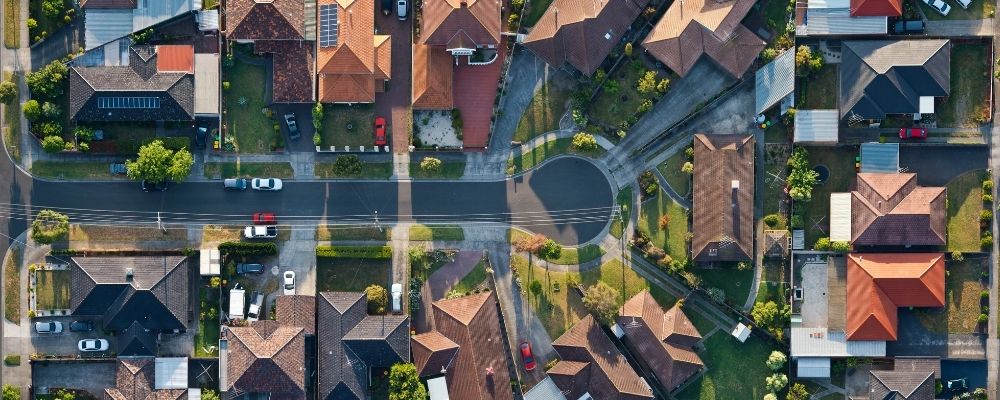Ultimately, there are three tried and trusted methods for finding the Appraised Value of a Home.
- Use An Online Home Value Estimator
- Speak To Real Estate Agents/Realtors
- Use A Licensed Appraiser
Knowing the value of your home can give you an advantage when buying or selling your home. It ensures that you don’t underprice the house as a seller, and it can also prevent buyers from paying more than the house is worth. Home appraisals also play a crucial role when taking out a mortgage or appealing for a tax assessment.
This article details how to find the appraised value of a home, while exploring some other important things to know about home appraisals.
Table of Contents
What Does Appraised Value Mean?
An appraised value is an objective valuation of how much a home is worth. It is determined by a professional or licensed appraiser who physically inspects the property and evaluates the value relative to comparable properties in the area. Home appraisals are mostly used by mortgage lenders who need to know the value of a home in order to establish fair and accurate loan terms that they are willing to offer a borrower.
If the value of your home is lower than the loan amount requested, then your loan application will be denied. The final loan value is effectively determined by the appraised value, and the Loan-To-Value ratio offered by the lender. For instance, if the appraised value is $200,000, and the Loan-To-Value ratio is 90%, the lender can offer a final loan value of $180,000. Other reasons for ordering a property appraisal include:
- Refinancing a mortgage
- Buying or selling a house
- An equity loan application
- A tax assessment appeal
Appraised Value vs Market Value
Appraised Value: An objective and accurate estimate of how much a home is worth, completed by a professional or licensed property appraiser.
Market Value: How much buyers are willing to pay for a property once it is placed on the open market. If the property market is hot, the market value may exceed the appraised value. However, if the real estate market is cold, the market value may be less than the appraised value.
You could say that the Appraised Value is the best possible estimate of what a home is worth, while the Market Value is the actual price that the market is willing to pay after the house is placed on the open market.
How to Find the Appraised Value of a Home
You can find an unbiased value of your home in several ways:
A) Use An Online Home Value Estimator
Thankfully there are a variety of online tools that can help you estimate home value. These tools tend to use a combination of MLS data and publicly available data to predict what a home is currently worth.
To learn more about these tools, check out our guide on the best home value estimator currently available online.
An After Repair Value(ARV) calculator is one calculation tool that can help you evaluate comparable properties in your area. You only need to fill in information such as the address, and you can get an estimate of the appraised value. Luckily, it is free and easy to use.
B) Real Estate Professionals
Real estate agents can also tell you the appraised value of your home. A private industry database helps them access recent information on any home. You can use a realtor’s opinion to ensure you get a better analysis of your home’s value.
A real estate agent will use CMA (Comparative Market Analysis) to measure the value of your home. They will get details on comps, also called comparable homes, in your suburbs. Knowing what homes that look like yours are worth can also give you a fair estimate. A realtor uses size, location, style, view, recent sales price, and home type to determine CMA.
With this option, it is crucial to respect the realtor’s time investment. Remember, if you are using them to know your home’s appraised value, they expect you to use them as your realtor.
C) Licensed Appraiser
If you want the best appraisal value, get yourself a professional. With a licensed appraiser, you have the guarantee of getting accurate values. Mortgage lenders require an appraisal from a professional so that loan transactions are completed. However, if you are selling your home, you do not need a professional appraisal value. Professional appraisers determine your home’s value depending on a lot of things. They research the value of your home through home visits and reviewing the last known sale price of similar homes in the area.
Additionally, they use a report as a guide and the house’s sales history to estimate the cost to build your home. You should not confuse a home inspection with the appraised value. A home inspection will only look at the structural soundness of your home for completion of a sale.
When choosing an appraiser, ensure that they have certificates and have experience in appraising your type of home. As for the cost of using a professional appraiser, it depends on two main factors; your residential area and the size of your home.
How Can I Appraise My Home Myself?

The cost of using a licensed appraiser to estimate the value of your home can be prohibitive in some cases. To avoid this cost, many people source values from online calculators instead. Even if they give you an idea of your home’s worth, they do not give you exact values. Luckily, you can avoid the inaccuracies of online evaluation tools and act as your own appraiser. Here’s how to do it in three steps:
1) Look For Close By Comps
Comps are the first step in getting your appraised home values. Look for houses that have a similar size, location, bedrooms, bathrooms, acreage to yours. If possible, look for a similarly structured house that was on sale less than two months ago. For the location, the closer the house is, the better. You can also look at different realtor sites to see which houses are similar to yours that are still on the market. Look at the properties and the price.
2) Workout The Price Per Square Foot
Once you find your estimated selling price, go ahead and divide this by the square footage. It will give you a result of the cost per square foot. Ensure that you have prices for at least three properties.
3) Determine Your Range
Add up the cost per square foot of all the homes you looked at and divide by the number of homes to get the average cost-per-square-foot. Take this number and multiply it by your home’s square footage.
After you get the final value, you can add and subtract 10% of the value too workout a reasonably accurate price range for the house.
Please note – A self-appraisal is not as accurate as a professional appraisal and is most suitable for general estimates when evaluating how much a property is likely to sell for.
What Is Appraised Value Based On?
The largest component of an appraised value comes from comparable property prices. Other factors that come to play in getting the appraisal value include:
- Location
- Interior and exterior condition
- The number of rooms in the house. The value goes up with the number of bathrooms and bedrooms.
- Interior design and functionality
Electrical, heating, and plumbing.
Kitchen, windows, bath, and roof improvements. - Age and condition of the house
- Pools. Hot tub and other exterior features including decks, detached garages, and porches.
Final Thoughts
When applying for a mortgage, you have to get a certified home appraisal. It is a fundamental requirement for the lender, and it plays a vital role in the final loan value that a lender is willing to offer a borrower.
You can also get the appraised value of your home if you decide to sell. The key benefit of knowing the appraised value when selling is that you can eliminate the possibility of setting a price that it is too low. In other words, the appraised value is a reliable metric that can give the seller a concrete understanding of how much their home is worth.
Lastly, if you are determined to do your own appraisal, you might find it valuable to learn how to find the history of a property online.

